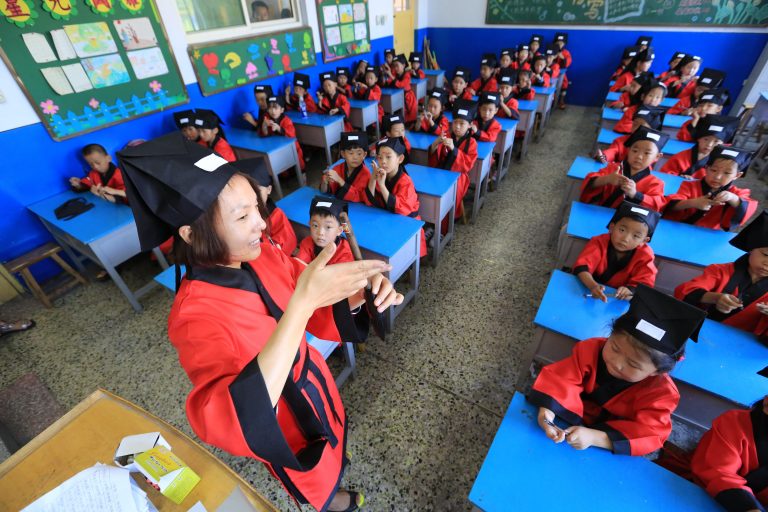In China, finding some extra math help for your grade-schooler has never been more difficult than it is now and the lengths some people are going to in an attempt to give their child an edge in school is bordering on the bizarre.
On June 15, the Chinese Ministry of Education established a new department to monitor off-campus education and training provisions and implemented controversial “reforms to the off-campus education and training sector.”
The Chinese Communist Party (CCP) banned training institutions from offering subject-based tutoring on national statutory holidays, rest days, or winter and summer vacations, typically the time students have to brush up on subjects they may be struggling with or to study ahead.
In addition, out-of-school training centers and cram schools were also banned.
In 2016, studying outside regular school hours was the norm in China. More than 75 percent of students in primary and secondary school attended after-school tutoring, according to the most recent industry figures. This is a practice communist party leader, Xi Jinping, criticized in March, saying the extra studying was a barrier to boosting birth rates.
Success
You are now signed up for our newsletter
Success
Check your email to complete sign up
China is currently in the throes of a deepening aging crisis where many regions across China are experiencing a population much older than what would typically support a robust and growing economy.
Despite the CCP’s reforms the market for after-school tutoring has not gone away, it has simply gone into hiding.
“Parents are turning to private tutoring, either in-person or online, and are relying on private introductions or hiring tutors to come to their homes in the guise of domestic helpers or electrical appliance repair workers,” Radio Free Asia (RFA) reported.
The reforms introduced by Beijing were intended to ease pressure on parents and students however they appear to be having the opposite effect.
Parents are now under even more pressure than before due to the fact that it has become harder to find teachers on the newly established educational services black-market.
If parents are able to find a tutor, the price tag that comes with it would give anyone sticker shock.
Zhou Xia, a former cram school insider, told RFA that tutoring fees are now hovering around 3,000 yuan (US$465) per hour.
In the city of Shenzhen, authorities recently carried out inspections of more than 5,000 tutor centers and cram schools, closing hundreds of them, according to a social media post by the city’s municipal education bureau.
Authorities are also on the prowl looking for tutors entering people’s homes disguised as other kinds of service providers.
Wang Zeng, a current affairs commentator in China, said that the private tuition industry has gone underground in order to survive.
“They are now conducting one-to-one tutoring in the guise of housekeeping and other services,” Wang told RFA, adding that, “Far from falling, the fees may be increasing.”
Wang said that the exorbitant fees are due to the high risks tutors are taking in order to supply their services, under wraps, adding that the new teaching model “may affect students’ learning,” and, “It’s psychologically harmful for the kids to do this on the quiet when they used to do it openly.”
The new reforms were implemented after CCP general secretary, Xi Jinping, referred to the practice of after hours studying as “a stubborn disease that is hard to manage,” in a speech in March.














